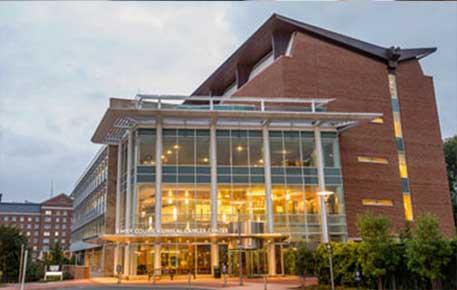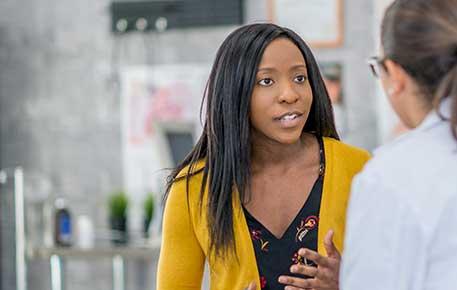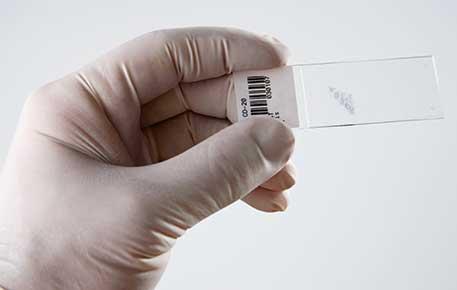Genetic Counseling for Cancer
Make an Appointment
For the Charlottesville area:
For Manassas or Haymarket:
You get your eye and hair color from your parents. But you can also inherit cancer. We don't know what causes most cancers. But about 5-10% of all cancers are caused by genetic mutations that are inherited.
We can test you for these gene changes. Genetic testing for cancer genes is done through a blood test. It can give you and your healthcare providers valuable information, far beyond a DNA test you might take on your own.
Better Understand Your Cancer Risk
At UVA Health, you can tap the expertise of a cancer genetic counselor. They can answer your questions about genetic testing and help you understand:
- Who should consider genetic testing
- What cancer genetic testing results can, and can't, tell you about your future health
Learn why you might need cancer genetic counseling. Even if you opt not to have genetic testing, you can still get a comprehensive risk assessment from a genetic counselor. You can learn about your risk of developing cancer and ways to prevent or screen for early signs of cancer.
Understanding Genetic Testing
Martha Thomas, MS, discusses why genetic testing should be considered.
Genetic testing can tell us a whole host of information. It can tell us about predispositions to developing cancers. It can tell us about predispositions to developing cardiac disease neurologic disease. It's oftentimes used as explanations for why there is developmental delay in a child for instance. So we can get a lot of information from genetic testing and being thoughtful about the testing that is ordered to help us answer the questions that we're asking is a really important part of genetic counseling. Genetic testing can often be done on a simple blood draw. So the process of genetic testing is not necessarily that complicated but it's interpreting the results and then translating those to clinical recommendations where genetic counselors can really be instrumental in making that transition. We actually have about an hour with all of our patients so we can really go into much greater depth of family and medical histories than other providers are able to go. We also have a very complex understanding of the genetics behind certain conditions as well as the most appropriate testing options that are out on the market so we can really help patients and families figure out what makes sense both from an information standpoint as well as a cost-effective standpoint. Genetics can make people nervous understandably because we are talking about family history in your DNA and we can't change your DNA so if we do testing and find something in your DNA it can be a very jarring experience for individuals and families. So some people when they go through the genetic counseling appointment don't want to do genetic testing or don't even want to come to genetic counseling in the first place. However we always try to encourage people to at least come and have a conversation with us because that's what genetic counseling is is it's really just a conversation.
What is Genetic Counseling?
A genetic counselor determines your risk of getting cancer based on:
- Your personal medical history
- Your family history
- Genetic testing
After collecting and interpreting all of your information and test results, a genetic counselor helps you understand what it all means.
Genetic counselors use this risk assessment to help guide you, your family, and your specialists and providers to a plan of care that is right for you.
Understanding Cancer Genetics
There isn’t just one "cancer gene." One gene may be related to several cancers. The BRCA2 gene, for instance, known for its relationship to breast cancer, can also cause ovarian, prostate, pancreas, and skin cancers.
Sometimes, if you’ve been treated for breast cancer, you might be worried about it returning. You may want to prevent that with a mastectomy, or breast removal. But what if you’re actually more at risk to get cancer in your colon? A genetic counselor can help you figure that out.
Don’t know your family’s medical history? We can still do genetic testing to gather helpful information.
- UVA Cancer CenterVisit the Cancer Center
When you have your genetic counseling session, visit the Learning Resource Center on the 3rd floor. We'll help you research and answer your questions.
- Do I Need Testing?Find out if you should get tested
You're worried about getting cancer or passing it to your children. Should you see a genetic counselor? We can help you learn about your risks and figure out next steps.
- Genetic DiscoveriesBrowse cancer clinical trials
As an academic medical center, we do research to improve cancer treatment and screening. Genetics plays a role in medical research more and more.


